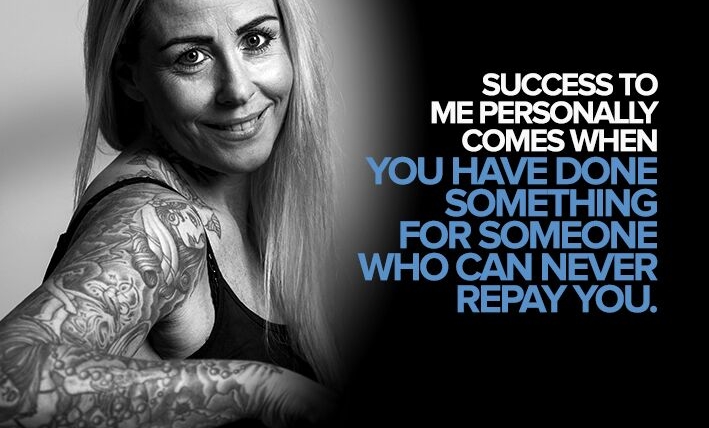
By Maria Prohazka
A couple of weeks back, I was part of a panel discussion at Creative Business Cup — a network for innovative businesses — in Copenhagen, addressing the topic of female entrepreneurship.
Some rather prominent and successful female entrepreneurs were on the panel alongside of me, but the discussion quickly devolved into how, today, men in the Western nations are still more likely to start or run their own business than women are (a topic that David Nethero, managing director of Golden Seeds, described in Entrepreneur.com).
Now why, I wondered to myself, is that?
Women are only half as likely to start a business.
I needn’t have asked myself that question because the statistics are clear: Men are still nearly twice as likely to be entrepreneurs as their female counterparts. According to the Huffington Post, only 36 percent of all businesses in the United States in 2016 were owned by women.
Now, being an outspoken, modern feminist, I believe that women themselves (and our lack of self-esteem) are the cause for this inequality. But, why is this a problem worthy of discussion?
When it comes to ROI, women outperform men.
Women’s low numbers in terms of U.S. business ownership should be taken seriously because they reflect a “significant pool of untapped potential.” When it comes to return on investment (ROI) ), women outperform men big time! Research (reported in Inc.) has also shown that women-led teams have a 35 percent higher return on investment than all-male ones.
According to Ingrid Vanderveldt, the woman behind the global company Empowering a Billion Women by 2020, this tendency toward higher ROI is what makes some investors interested in investing solely in startups founded by women.
Good to hear, right? So, why are fewer women still starting or leading businesses when we’re are obviously so good at it?
Women struggle with a lack of self-confidence.
One reason seems to be the lack of self-confidence so many women have. This issue is so prevalent that it stands in the way of our achievements. But isn’t self-confidence just a sorry excuse for never taking a risk and reaching our full potential?
Because you can bet that men struggle, too. They are just better at hiding it.
The need for constant approval
You often hear women entrepreneurs and business owners express their need to be cheered on. Female entrepreneurs need constant confirmation and approval from friends, family, business colleagues and mentors that they are doing well and need to keep on going.
As Tiffany Rezende, founder and CEO of Atoms Integrator, explained to us on the panel: “Most women really need a team of cheerleaders constantly cheering them on. Otherwise they give up and lose themselves in self-doubt and worries.”
But I can tell you that the guys I know feel the same way. So, why are women letting their fear of failure rule their lives when men seem to be able to manage just fine?
Impostor syndrome
I first heard of this phenomenon listening to the podcast Entrepreneur On Fire with John Lee Dumas. And it changed my whole perspective of my own abilities and achievements. The term originated in 1978 in an article by two psychologists. It refers to high-achieving individuals who have a persistent fear of being exposed as a “fraud.”
Most entrepreneurs and highly successful business people have that feeling at times. And that’s a problem because it can seriously damage your career and business, if you don’t take take steps to avoid falling victim to that fear.
Believe in yourself.
I myself am founder and CEO of the visual agency Levende Streg, in Copenhagen. We create animation videos, strategy visualizations, comic books and concept art for global companies. I started the company in 2012. Today, I run the company with a female managing partner and about five freelancers. And yes, it’s risky and challenging to run a business. The responsibility sometimes feels overwhelming. I doubt myself every day. But it’s also a lot of fun.
However, I have a strategy: When I’m really anxious about not performing well enough (for instance when I’m drawing live, visualizing a business strategy), I think of Pippi Longstocking (a children’s character, created by Swedish writer Astrid Lindgren, that I grew up with).
Lindgren has said that, “Pippi represents my own childish longing for a person who has power but does not abuse it.” Red-haired, freckled, 9-year-old Pippi is also the strongest girl in the world, who likes to say thing like: “I have never tried that before, so I think I should definitely be able to do that!”
That’s why I still enjoy Pippi; she has the attitude we women need when we start or run our own business.
For women, the family comes first, and that’s okay.
I have two kids and a spouse. And for me, my family comes first. It always has. But I’m pretty sure that most of my male friends would say the exact same thing. Children will always have a great impact on our private lives, as well as on our work life. That’s just the way it is. So, why do so many women still use their children as an excuse for not being high achievers?
Dare to take the risk.
I truly believe that men and women are equal — both in their cognitive abilities and emotional depth, and in the richness of their inner emotional lives.
Women (at least here in the West) have to stop making excuses for themselves and stop whining about all the fear and potential risks of entrepreneurship. Get out there and shape your own future, girl! That’s what Pippi says. That’s what I say.




